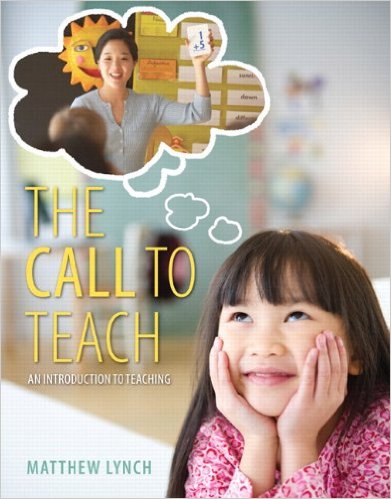Public schools last frontier to equality?
**The Edvocate is pleased to publish guest posts as way to fuel important conversations surrounding P-20 education in America. The opinions contained within guest posts are those of the authors and do not necessarily reflect the official opinion of The Edvocate or Dr. Matthew Lynch.**
A guest column by Constance Evelyn
America’s landmark legislative actions illuminate a core mission of providing a free and appropriate education for all students attending public schools. The common thread among these legal precedents is the objective to ensure equitable access to high quality instruction cementing literacy as the most basic human rights principle. Inherently, is the notion that the sanctity of childhood is precious and should be protected. These virtues are essentially upheld in Brown vs. Board of Education, PL94-142, and The Individuals with Disabilities Act (IDEA) as indicators that as a country we value the future of all children. Indeed that we understand the very fate of our democratic nation depends on a passionate dedication that public education is possibly the last bastion in ensuring equal access to becoming learned.
Philosophically, I’m aware that my perspective is based in my life experience as perhaps many others may attest. Bias is personal; and mine is partly borne from being the only mixed race, foster child attending our local elementary school. I should say that graduating as the valedictorian did not help an already tenuous situation. Flagrantly displaying intelligence in my neighborhood was not necessarily smart. And fortunately, I learned this rather quickly. However, achieving at the highest levels was a non negotiable in my household, and therefore, my grades, demeanor, and in particular the preferential treatment I received by teachers told the true story. I was mercilessly bullied, chased home from school, and called hurtful names. The most frequent tag was ‘white girl’. I often recounted to my mother that this part of the verbal attacks was particularly painful because she taught me that it communicated more about the ignorance of my offenders than any other intentions they may have had. After years of this harassment and the school’s suggested remedy of having me skip a grade as solution for my being young, black, and gifted, my mother came up with a new plan. At eleven years old, I was enlisted in a clandestine scheme that would forever change the trajectory of my life. Mom decided that a better response to challenge my intellect was sending me across town to the high performing intermediate school. It took me almost two hours in one direction to access high quality education in 6th grade. There was no ‘skipping’ except for the three bus transfers involved in my travels.
Many things astounded me within a week’s time at my new school. When I walked into sixth grade, the students said out loud, ‘Who’s that black girl?’ Secondly, I was the only African-American student in this class and the other two tracks that had been devoted to high performing students. Soon there were many other observations I made, but the most startling of my discoveries happened on my ride home from school on the ‘special’ bus. There actually were other African-American students in the sixth grade attending this school! As I mingled with them, I realized that many of them were in the same class, 6-8. When they asked what class I was in, I changed the subject. I was even ‘smarter’ by now, and I knew that I should let them get to know me, before I let them identify what kind of student I was.
As public school educators, we must regard our charge as both a moral imperative and obligation. This commitment will foster a clear understanding of what we have come to believe is our purpose for serving students. Our decisions about this are usually equal to our assets. Essentially, the pledge is straightforward. High-quality educators have a mindset that warily recognizes the menacing nature of mediocrity and the sustenance of low expectations. A good teacher approaches her work with a sincere faithfulness in response to the pledge that, all children should have a right to a sound education. In turn, our confidence in all students’ ability to achieve at the highest levels emanates from this respect.
And then there is the case of leadership. Great leadership should propel the work of removing barriers and creating multiple pathways for all children to achieve success. No child should have to leave her neighborhood to access a rigorous education. Nor should his education be denigrated by tracks that lead to an erroneous certificate of completion. It is unconscionable that any young person would necessarily travel four hours a day to forge their entitlement to good teachers, appropriate curricular resources, and coursework enabling them to open doors that would have otherwise been unapproachable. And no American, should have to know the shame and guilt of never learning to read. This is the fundamental promise of public education.
As a Superintendent, I am one of hundreds of school leaders faced with the many challenges presented by capped budgets and, notwithstanding, the most economically and racially segregated public school systems we’ve been charged to manage in recent history. Simply put, doing more with less has never been this harsh. The urgency of this status is magnified in the knowledge that sixty years after Brown vs. Board of Education, resource allocation formulas remain broken and, at least in New York State, the hardened perpetuation of outcomes for underprivileged students is grossly predictable.
The challenge for everyone involved in the education of children is commitment. Unwavering support for the idea that we must all contribute to a common value system that conveys high standards for student and educator achievement, organizational and individual growth, and the underlying truth, that a ‘good’ school can always be better.
________________
Constance Evelyn has a Bachelors of Arts in Psychology from the College of Staten Island, a Masters of Science degree in Special Education PreK-12, and Supervision and Administrative degree from Long Island University. She currently serves as Superintendent of Schools in Auburn, NY.





